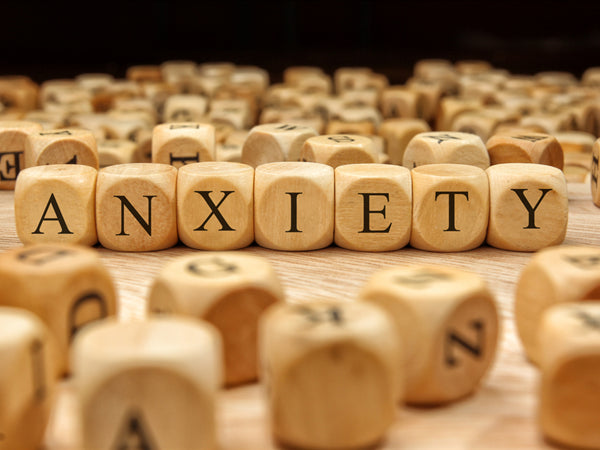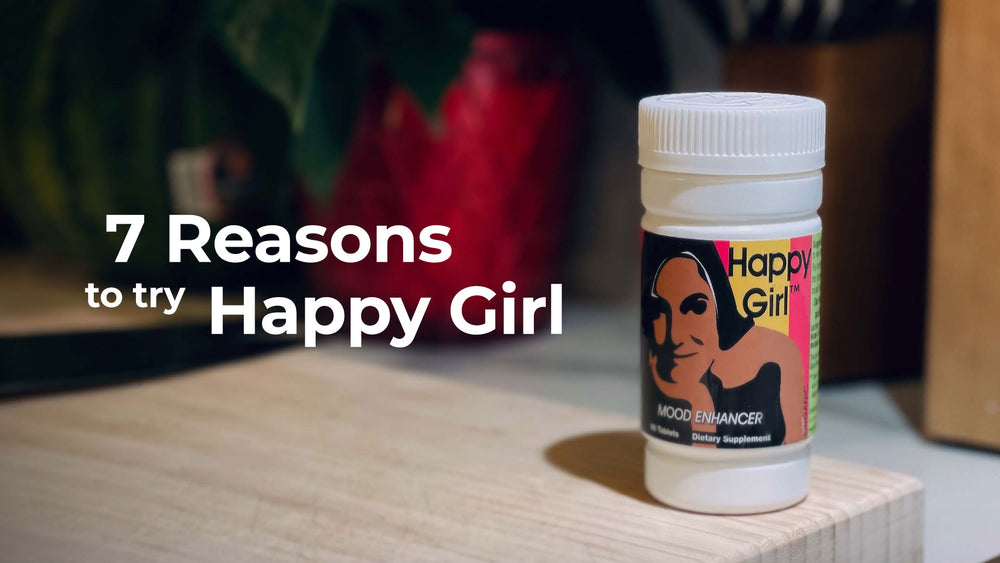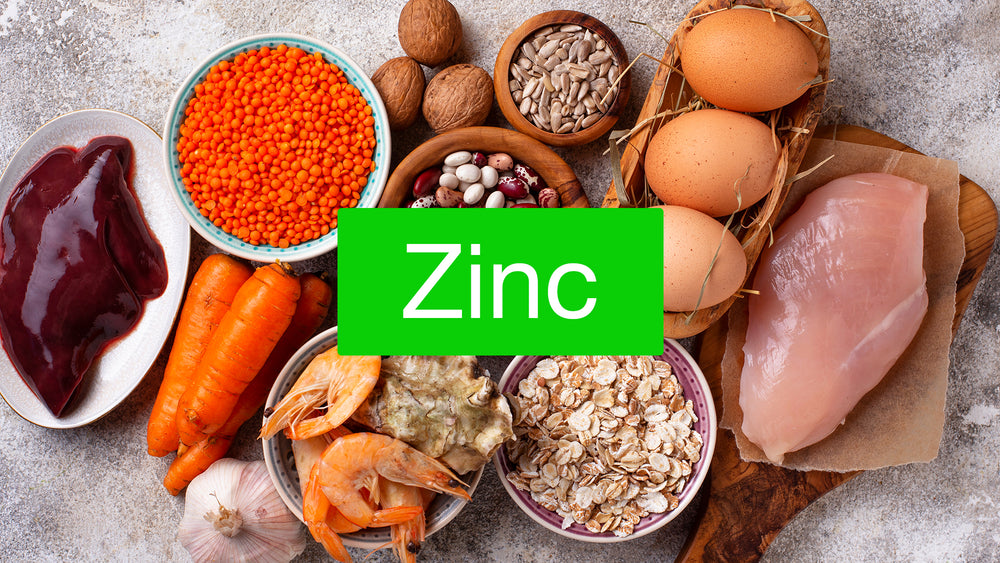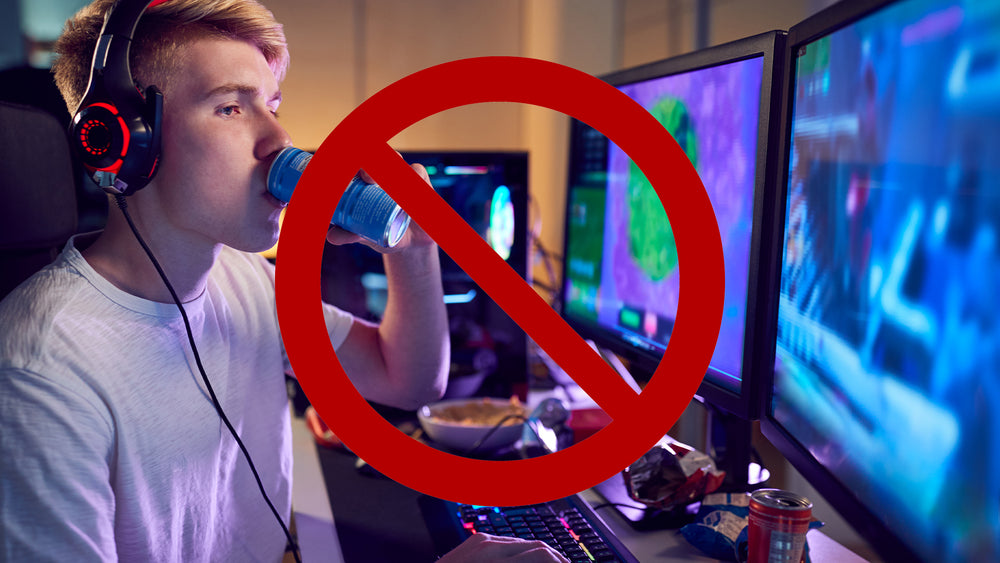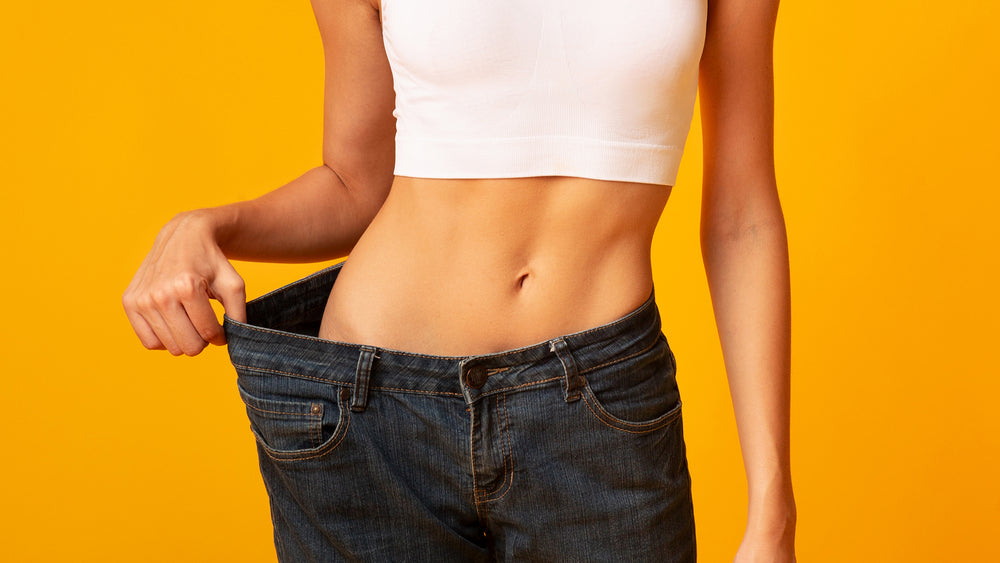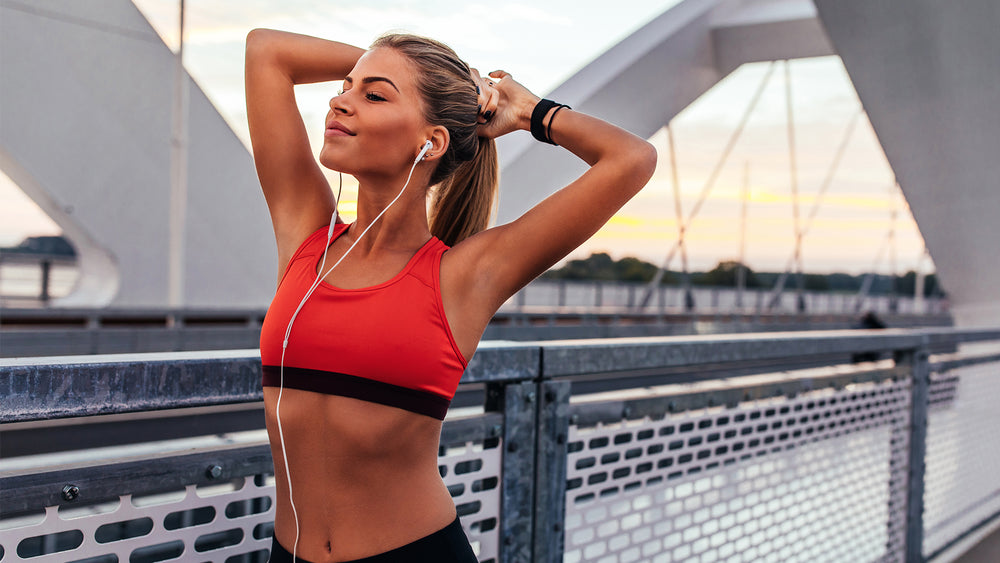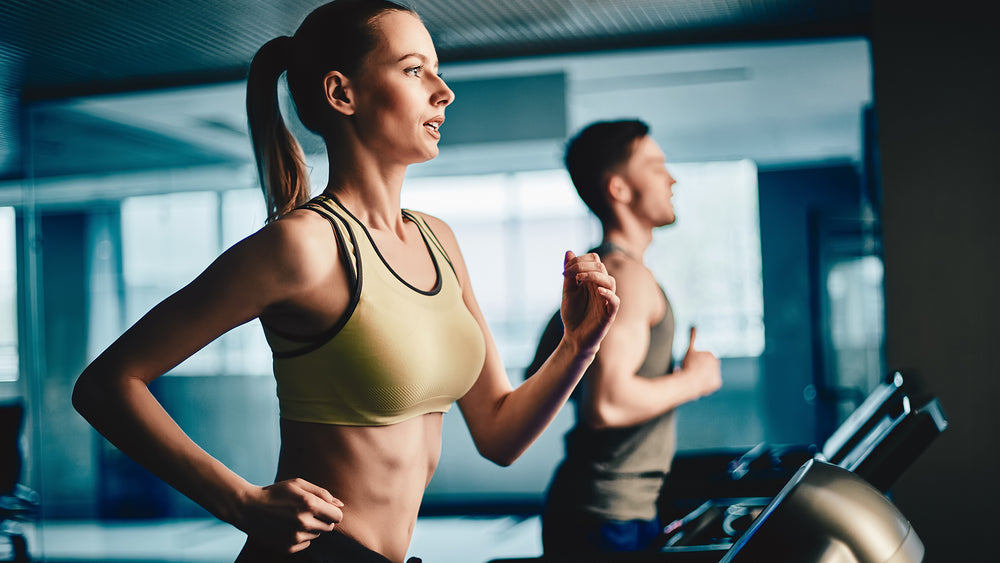Persistent anxiety takes the joy out of life. We've all experienced stressful situations at work and at home. Like anything else that happens to us, our reaction can make the difference between diffusing the problem and making it worse. Most people don't need to take medication to control anxiety – that should always be a last resort. With a little bit of knowledge and willpower, you can improve mild to moderate anxiety on your own. Controlling anxiety naturally involves many methods anyone can use.
Changing your diet, exercising, getting more sleep, meditating and making more social connections are a few ways you can treat occasional anxiety. Most people suffering from clinical anxiety can benefit from one or more of these natural methods. Treating anxiety disorders with lifestyle changes can modify the amount of medication a patient needs, saving money and reducing unpleasant side effects.
Do I Have Mild Anxiety or an Anxiety Disorder? What's the Difference?
Occasional anxiety is often tied to some external event (moving cross-country, getting a divorce, getting fired from a job), but clinical anxiety disorders occur with or without reason. If you're not sure where your level of anxiety fits on the scale, here's an overview of clinical anxiety disorders.
Types of Clinical Anxiety Disorders
About 6.8 million Americans suffer from generalized anxiety disorder (GAD), ongoing worry about everyday activities, with or without reason. Unlike occasional worry over daily challenges, GAD and other anxiety disorders persist and worsen over time, affecting a patient's ability to maintain relationships or concentrate on work or school
People with panic disorders are stricken with intense bouts of fear lasting for several minutes. They may feel a loss of control and a sense of impending doom, even when there's no reason to feel threatened. Panic attacks affect more women than men, and often begin in adolescence or early adulthood. Physical symptoms include sweating, dizziness, racing heart, trouble breathing, chills and chest or stomach pain. Panic disorders may be inherited.
Social anxiety is a strong, often debilitating fear of being embarrassed in public or ridiculed by others. Everyone has apprehension about giving a speech or performing in front of an audience, but people with social anxiety are paralyzed by the fear of what might go wrong days or weeks before the fact. People with social anxiety may be afraid of saying the wrong thing in mundane situations (talking to a cashier or customer service rep, for example), eating in front of others, or riding in an elevator with strangers. They may avoid people, take days off work or school because of an imagined unpleasant situation that might occur, or feel self-conscious when around others. Social anxiety affects 15 million adults in the U.S. and usually starts during adolescence.
Clinical anxiety disorders are treated with behavioral therapy or medication. Occasional mild to moderate anxiety can be reduced with lifestyle changes. These changes include getting more exercise, eating a healthy diet, meditating and getting enough sleep.
Restful Sleep Reduces Anxiety
Sleep between seven and nine hours a night to reinforce your memory and refresh your mind for the next day's activities. When you don't get enough sleep, you feel frazzled and unable to concentrate on simple tasks. Insomnia causes fatigue, increasing your chances of poor work performance, accidents and injuries.
Institute a regular sleep routine. Go to bed at the same time each night, and make sure your bedroom is quiet and dark. Keep window shades pulled and avoid using computers, TV or cell phones at least a half-hour before going to bed. Don't drink alcohol or coffee or eat a big meal two to three hours before going to bed. Eating a big meal late at night may cause bloating and stimulate acid reflux, preventing you from getting the rest you need.
Controlling Anxiety Naturally with Exercise
According to the Anxiety and Depression Association of America (ADAA), exercise is as effective as medication for some people suffering from anxiety. Exercise and physical activity guards against disease and weight gain, but it also promotes better mental function. Stress reduces cognitive ability and energy, making it harder for you to make good decisions. Even brief amount of exercise can perk you up and help you think clearly again.
Regular cardiovascular exercise releases endorphins to relax you. Take a 30 to 60 minute walk a few times a week. Choose from other physical activities to keep you calmer and control your weight at the same time. Bike, rollerblade, swim or join an amateur softball or soccer team. Any type of moderate physical activity should help you get to 50 to 70% of your maximum heart rate. Vigorous physical activity should get you to within 70 to 85% of your maximum heart rate. Your maximum heart rate is determined by your age. It's important to engage in at least 30 minutes of physical activity a day. That doesn't mean you need to go to the gym each day. Walking, housework, yardwork – or anything that gets your body moving – counts as exercise.
Gentle Hatha yoga, which consists of many stretching poses or asanas, calms your nerves and helps you focus without much physical exertion. Hatha yoga also utilizes controlled breathing, meditation and deep relaxation to focus the mind and tone the body. A 2005 German study showed that women who described themselves as “emotionally distressed” experienced a 30% improvement in anxiety and a 65% improvement in overall well-being after three months of practicing yoga.
Control Your Anxiety with Cognitive Therapy
Cognitive therapy, also called behavioral therapy, focuses on examining your thought processes and the choices you make. Cognitive therapy teaches you how to control your thoughts and fears to look at the world through a pro-active lens instead of a reactive one.
Anxiety therapy does more than treat the symptoms caused by ongoing worry. Your therapist will help you uncover the underlying causes of your anxiety and confront them. The number of therapy sessions you'll need depends on the severity of your anxiety. If you only have occasional anxiety, only a few sessions may be needed. People with panic disorder or social anxiety may need more therapy sessions before noticing improvement.
Your therapist will help you identify negative thought patterns and replace them with more realistic thoughts. Instead of worrying about being embarrassed at a party, you can think about how to find interesting people to talk to, and what to say to them.
Connecting with others, through activities you enjoy and support or self-help groups reduces anxiety. Isolation increases negative thoughts and worries. Confide in an old friend or trusted family member when you're feeling anxious.
Declutter Your Life
Eliminate clutter in your physical space. Find a disorganized countertop, closet or drawer and comb through it. Separate it into two piles, one of items to keep and the other for items that must go. Decide if the unnecessary items should be thrown out, given away or sold on eBay or at a yard sale.
Treat Yourself in Small Ways
Even if your anxiety is caused by financial difficulties, find small ways to treat yourself. Make a homemade smoothie with fresh fruit from the farmers market. Browse the aisles of your favorite discount store to find colorful picture frames for treasured family photos, or buy travel-sized cosmetics from the drugstore sample bin. You don't need to go on a cruise to feel better. Reward yourself with a day trip to a museum, park or other attraction near you. A few hours exploring a forest preserve or sitting on the beach can do wonders for your mood!
Controlling Anxiety Naturally with Healthy Food Choices
When you're under stress, you may indulge in ice cream, fast-food hamburgers, potato chips or other comfort foods. Your favorite snack may only be making your anxiety worse – and packing on the pounds. When you're feeling stressed, eating the right foods can make the difference between improving your state of mind and aggravating your bad mood.
Some Tips for Reducing Stress Through Diet
The list of potentially damaging ingredients in processed foods includes fructose, MSG, artificial coloring, artificial sweeteners and other ingredients linked to irritability and poor mood.
Drink plenty of water. Even mild dehydration affects your mood, contributing to anxiety, irritability and reduced mental acuity. Don't use alcohol as a crutch to lower stress. Alcohol lowers your inhibitions when you first drink it, but as your body processes it, you may become irritable and depressed. Alcohol changes the level of serotonin in the brain, making you feel more anxious. It can also prevent you from getting to sleep at night.
Complex carbohydrates increase the amount of the calming brain chemical serotonin. Whole grains, such as quinoa, oatmeal, barley and whole wheat bread are examples of mood-enhancing complex carbohydrates.
Controlling Anxiety Naturally with Fruits and Vegetables
Eat antioxidant-rich fruits and vegetables to reign in stress. Fish, whole grains, beans, nuts and seeds are other healthy choices to reduce anxiety. Make sure you eat plenty of these vitamin and mineral-packed foods to stay calm and attain better overall health.
Oranges, strawberries, papaya and cantaloupe provide high amounts of Vitamin C, so make a fruit salad or smoothie to relieve anxiety. This vitamin reduces levels of cortisol in the body when you're under stress.
Bananas have plenty of Vitamin B6 (pyridoxine) to increase production of the neurotransmitter GABA. GABA helps create endorphins, which help calm you down during anxious moments.
Avocados contain B-complex vitamins to boost immunity by producing free-radical-fighting cells. A cup of raw cubed avocado contains 240 calories, so it's not exactly a diet food, but it contains Vitamin B6, Vitamin B9 (folate) and Vitamin B5 (Pantothenic acid) to calm nerves and improve mood. High in healthy monounsaturated fat, with magnesium and more potassium than bananas, this creamy green fruit helps lower blood pressure when you're faced with a stressful situation. Add a slice or two to salads or sandwiches to chill out with B-complex vitamins. Eating just a small amount of avocado will fill you up, reducing the chance you'll nibble on extra snacks throughout the day.
Mushrooms contain Vitamin B5 (pantothenic acid), which helps produce hormones to banish anxiety and depression during difficult times.
People prone to anxiety and depression have low levels of B-complex vitamins, including folate. A cup of cooked asparagus contains 67% of the daily recommended value of folate (Vitamin B9), 24% of the DRV of Vitamin B1(thiamin), 19% of the DRV for Vitamin B2 (riboflavin), 12% for Vitamin B3(niacin), 8% for Vitamin B5 (pantothenic acid) and 8% of the DRV for Vitamin B6 (pyridoxine).And it's chock full of Vitamin K, selenium, zinc, potassium, fiber and Vitamins C and E. Add asparagus to salads and pasta or make asparagus omelettes to get more B-complex vitamins in your diet.
Controlling Anxiety Naturally with Dark Chocolate
Unsweetened dark chocolate and cocoa products are full of flavonols, phytochemical compounds found mostly in plant-based foods. Blackberries, cherries, beans, apples and onions are high in flavonols, but dark chocolate contains a high concentration of flavonols, making it a good on the go snack to alleviate inflammation and stress. Always choose dark chocolate over other types. The production process drains most of the flavonols out of milk chocolate and white chocolate. Dark chocolate has other stress-busting nutrients, including magnesium. Magnesium helps maintain bone density, control blood sugar and give you more energy.
A study conducted at the University of Bern in Bern, Switzerland showed that men who ate dark chocolate had a lower level of stress-causing cortisol and epinephrine than study participants who received a placebo. The flavonols in cocoa also reduce hypertension and your risk of stroke. Replace other sweets in your diet with dark chocolate to reduce stress. There's no recommended daily amount of dark chocolate for health, but most studies used between 1.5 and 3 ounces of dark chocolate. Always read the nutritional information on the wrapper when buying dark chocolate. A 1.5 ounce serving of dark chocolate has 220 calories, 5 grams of fiber and 5 grams of sodium. Cocoa content is important-eat dark chocolate bars made from at least 70% cocoa beans.
Controlling Anxiety Naturally with Omega 3s
Research conducted at Ohio State University states that Omega 3 fatty acids reduced anxiety in healthy students who participated in the study. The compounds in Omega's are believed to reduce cytokines, small proteins that increase inflammation. Anxiety has been shown to increase cytokine production. The researchers conclude that adding Omega 3's to the diet may reduce cytokine and the inflammation it causes. Foods rich in Omega 3's include salmon, tuna, flaxseeds, walnuts, shrimp and cauliflower. Controlling anxiety naturally by including more Omega 3 rich foods in your meals will also improve heart health and lower blood pressure.
Magnesium-rich almonds reduce stress headaches and relax muscles. Carry some almonds with you to keep calm before a speech or other stressful event. Almonds also contain Omega 3 fatty acids to offer more protection against anxiety, depression and heart disease.
Wheatgrass is the Premier Superfood for Controlling Anxiety Naturally
Wheatgrass helps you relieve anxiety naturally. This superfood offers the mood-enhancing qualities of chlorophyll, B-complex vitamins, Vitamin C, Vitamin A, Vitamin E, Vitamin K, selenium, zinc and essential amino acids. Wheatgrass has 90 minerals, hundreds of enzymes, amino acids and phytonutrients.
Wheatgrass has hundreds of nutrients, but the most prevalent and powerful one by far is chlorophyll. Magnesium is the primary component in chlorophyll. The calming power of the magnesium in chlorophyll relaxes muscles and acts as a natural stress-reliever. This vital nutrient is involved in cell transport and biochemical reactions throughout the body. Magnesium has often been used as a home remedy for many physical and emotional maladies, including irritability, headaches, depression and menstrual cramps. Recent studies show that magnesium can help reverse anxiety, depression and fatigue in patients.
It's no wonder anxiety is so rampant in today's society. The stress in daily life has increased in the past few decades, and research shows up to 80% of Americans are magnesium-deficient. Taking a wheatgrass supplement tablet and eating more yogurt, dark chocolate, avocados and other magnesium-rich foods can help in the fight against anxiety and contribute to overall well-being.
Controlling Anxiety Naturally with HappyGirl, Zeal O2 and REVV
Wheatgrass supplement tablets from Wheatgrass Love combine high-grade wheatgrass and a proprietary blend of herbs to help control the symptoms of mild to moderate stress. Our easy to take wheatgrass supplements include Zeal O2 Natural Weight Loss Supplement to help you manage stress and maintain weight, HappyGirl Mood Enhancement Supplement, to increase energy to keep you focused and calm during the most demanding times, and REVV Natural Energy Supplement, to curb the effects of stress and depression while increasing endurance.
Happy Girl mood-enhancing supplement, is made with high-grade wheatgrass fortified with extra B-complex vitamins. All B-complex vitamins are great stress-relievers, especially B6, B12 and folate. We've also added an herbal blend with green tea extract, damiana, ginseng, gingko biloba, fo-ti, hawthorne berry and cayenne pepper, among other nutrients, to boost energy and offer all-around health benefits. Happy Girl is a stress-reducing wheatgrass supplement for both men and women. Learn more about Happy Girl here.
Zeal O2 Natural Weight Loss Supplement offers a high-grade wheatgrass formula supplemented by an anxiety-busting propriety blend. The green tea extract and cayenne pepper in Zeal 02's herbal blend provide anti-inflammatory properties to keep you focused and healthy during stressful times, and fat-burning citrus auranthium (bitter orange heightens your metabolism to control appetite and help you reach your weight loss goals. Order Zeal 02 here:
Controlling anxiety naturally is easy when you take REVV Natural Energy Supplement. These chocolate mint wafers curb the effects of stress and depression and give you more energy at the same time. REVV 100% Natural Energy Supplement wafers offer all the nutritional advantages of wheatgrass with additional B-complex vitamins for even more energy. We've added periwinkle herb to increase mental acuity and L –Taurine to give you even more brain power and keep your heart healthy. Order REVV here.
All Wheatgrass Love products are guaranteed to work or your money back Call us today at 877-303-1717 if you prefer to order by phone!

